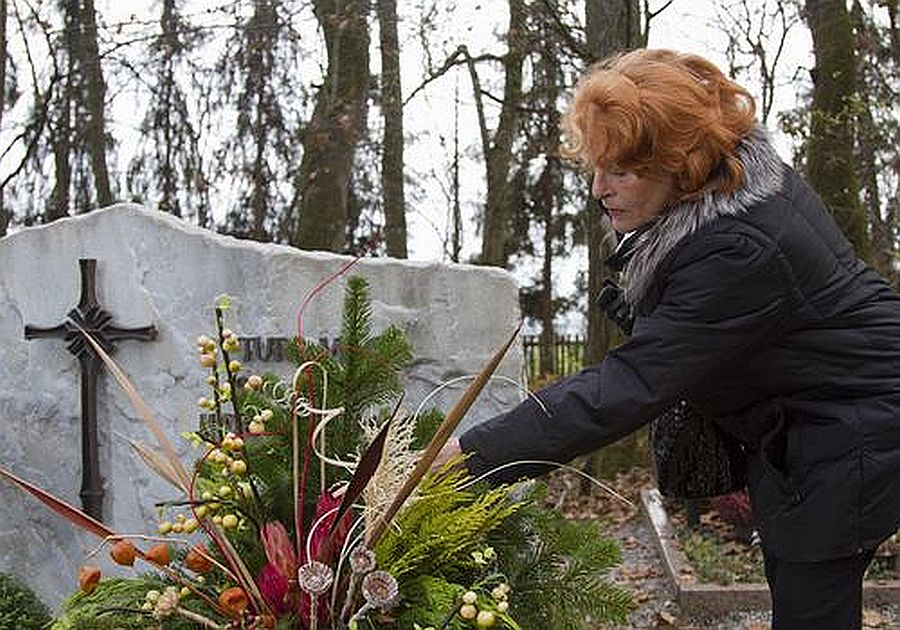Tips for Coping With the Death of a Spouse

Losing a spouse can be devastating, whether the death is sudden or following a long illness. One day you are married; the next day you are single, alone, and grieving. Between the intense emotions, the lifestyle changes, and the many practical considerations that accompany the death of your spouse, you probably feel overwhelmed and anxious about your future.
Advice for Dealing with Grief
That Comes with the Loss of a Spouse
Over time, the grief will likely subside and you will build a new life for yourself. In the meantime, here are some tips to help you cope.
Go Easy on Yourself
There is no "right" way to feel after losing your
spouse. So many variables contribute to your reaction, including how long and
happy your marriage was, how your spouse died, how old your children are (if
you have them), and how dependent you were on one another.
You may feel numb, shocked, brokenhearted, or anxious. You
may feel guilty for being the one who is still alive or relieved that your
spouse is no longer suffering if he or she was ill for a long time. You might
even feel angry at your spouse for leaving you. You may cry a lot, or you may
not. How you grieve is unique to you.
Be prepared for friends and family who may not know what to
say, avoid you, or try to comfort you with cliches (such as "he's in a
better place). Often, well-meaning people are uncomfortable talking about
death, but it doesn't mean they don't care. If you can, tell those close to you
what you need (or don't need). If people avoid mentioning your spouse, for
example, and you actually want to talk about him, let them know. Keep in mind that
your friends and family are also grieving and may find it comforting to share
memories of your spouse.
Take Care of Your Physical
Health
Grieving can take a toll on your body as well as your emotions. You may have no appetite or
trouble sleeping. It may be easier said than done, but try to take care of
yourself by eating well, exercising, and getting enough sleep. Try to avoid
drowning your sorrows by drinking excessively, as that can actually exacerbate
your pain.
One study found that the risk of death for the surviving
spouse goes up, particularly in the first three months of bereavement. Taking
care of your physical health in the months after your loss is essential.
Be sure to let your healthcare provider know if you are
having trouble following through on everyday activities, like getting dressed
or fixing meals for yourself.
Seek Support
Coping with the aftermath of loss is often extremely lonely and confusing, and it is not unusual to feel depressed. The loss of a spouse is also associated with an elevated risk of the onset of a number of different psychiatric disorders.
Studies suggest that a lack of social support after an
unexpected loss is a key predictor of depression.3 For this
reason, it is important to reach out to other people in your life for
help. You may be inclined to turn inward, but you'll probably fare better
if you seek support from family, friends, your religious community (if you have
one), or a counselor.
Joining a support group with other people who are grieving can also be very
comforting. Your healthcare provider, therapist, or local hospital can usually
provide information on locating such groups. Numerous bereavement groups are
available online as well.
Sort Your Social Life
Navigating your social life as a single person can be
complicated. If you and your spouse socialized with other couples regularly,
you may not know how to fit in now. You may feel awkward going to parties and
other events solo. Tell your friends how you feel and explain that you may need
to avoid "couples" dinner parties and get together for a while and
see friends one-on-one instead.
However, being single can also provide a welcome opportunity
to seek out new friends. Consider volunteering or taking a class to motivate you to
get out of the house and pursue something meaningful.
Signs of Complicated Grief
Losing a spouse is life-changing and profound grief is a
normal reaction. Sometimes, though, grief is so profound that it interferes
with your ability to move forward with your own life. This is known as
"complicated grief" and it affects an estimated 7% of bereaved
people. Signs include:
Feeling as if you
have no purpose anymore
- Having difficulty performing everyday activities
- Experiencing continued feelings of guilt, or blaming
yourself for your loved one’s death
- Wishing you had died as well
- Losing the desire to socialize
If you can't get past these feelings, talk to your doctor or
a therapist, who can recommend treatment options.
A Word From Verywell
As hard as losing a spouse is, it is possible to create a
new and fulfilling life for yourself while still cherishing the memories of
your relationship.
Writer: Sheri Stritof
Source: www.verywellmind.com

Add New Comment